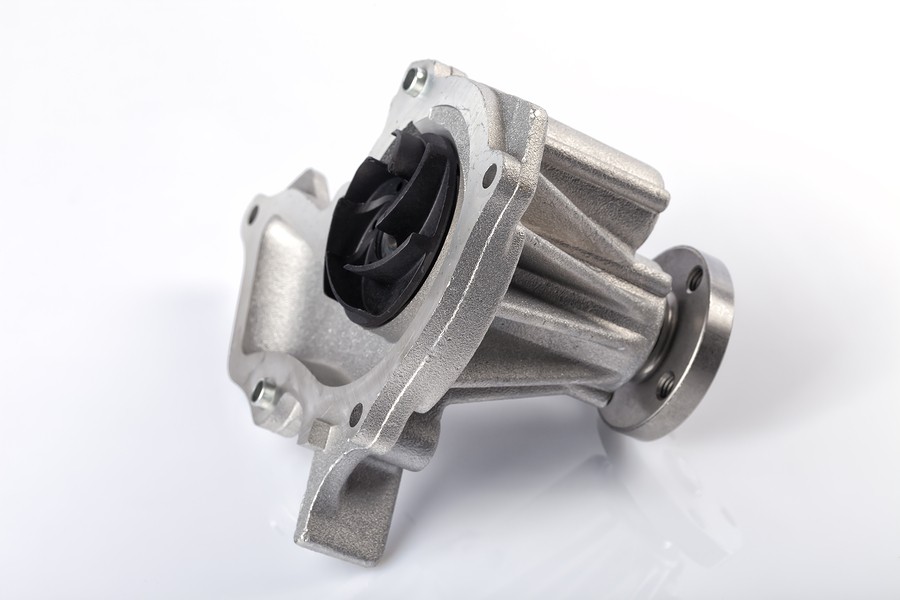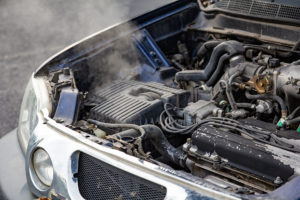Water Pump Replacement Cost
Originally Posted On: https://www.cashcarsbuyer.com/water-pump-replacement-cost/ A few years back, I made the decision to buy an older Toyota 4Runner. The vehicle looked nearly new on the outside and was well-maintained, or...Wednesday, January 22nd 2020, 2:55 am

A few years back, I made the decision to buy an older Toyota 4Runner. The vehicle looked nearly new on the outside and was well-maintained, or so I thought! Three weeks after buying it, I pulled into a hotel after a long road trip and discovered coolant pouring from underneath the vehicle. I got it towed to a local mechanic and it took them a few minutes of testing to find out I had a major issue. My water pump had failed. Typically, water pump replacement costs anywhere from $350 to $1000+ and can vary based on a variety of factors:
- Brand Of Vehicle / Year
- Engine Orientation
- Design Considerations of Engine
- Part Cost
My water pump cost me over $1000 to replace! This was mostly due to the poor design of my vehicle’s engine and the extreme amount of labor that it took to replace the water pump and associated componentry. If your water pump has failed, you may pay more or pay less.
In order to understand why a water pump is an expensive repair, this article will dive into what a water pump does and what the typical repair process looks like for a mechanic. We will also dive into what makes a water pump difficult or easy to repair on commonly owned vehicles.
What Is A Water Pump?
The water pump is a crucial part of your vehicle’s engine cooling system. Since heat is a necessary component of the internal combustion engine – it’s imperative that your vehicle’s engine cooling system is operating at peak efficiency. Any failure in your vehicle’s cooling system will quickly render your vehicle useless.
A water pump uses impellers and centrifugal force to move coolant throughout your vehicle’s engine. Modern internal combustion engines have ports that surround the engine block and are filled with coolant (which sometimes referred to as antifreeze). Most industrial machinery uses some type of pump to cool down heated components and your vehicle’s engine is no different.
The water pump is driven by a belt that is connected to the engine crankshaft. Your crankshaft has what’s called a serpentine or accessory belt that is used to drive a variety of components within the engine bay. Other common items driven by the serpentine belt include the power steering pump and the alternator. Your vehicle’s engine not only moves the car down the road but also drives these various components of the system.
Once coolant is moving throughout your vehicle’s engine, it is moved to the front of the vehicle where a radiator allows the coolant to be chilled by air that is produced by the vehicles forward motion.
What Causes A Water Pump To Fail?

Water pumps are a piece of componentry on your engine that is under constant use. If you fail to maintain your vehicle effectively, the seals and parts of the water pump can fail due to foreign bodies or even rust within your system. Coolant is also a lubricant for your water pump, so if there’s not enough coolant or the coolant is dirty it can cause major issues.
Overtime, rust can form within your vehicle’s cooling system or within your vehicle’s radiator. Typically, your vehicle’s manufacturer recommends that you change out the coolant at pre-described intervals. This is done to flush out your cooling system of rust particles and other debris that can damage components like the water pump.
Many times the water pump is simply part of a poorly engineered cooling system! My mother-in-law has a Chevrolet Cruze that had fried a water pump due to some cheap plastic componentry within the cooling system. This plastic would heat and cool during the engine cycles and then cracked after repeated engine cycles long before it ever should’ve done so. This caused a fluid leak which then caused a water pump to not be adequately lubricated and the system failed.
How Do I Know My Water Pump Failed?
There are a few key events that will typically indicate the failure of your vehicles water pump.
- The temperature gauge on your vehicle may suddenly rise to an unsafe level and your vehicle may begin to notify you if there’s a problem with alarms or chimes.
- You may begin to see smoke pour out from underneath your vehicle’s hood. This is more than likely due to coolant leaking out of a water pump and onto your hot engine. The smoke is usually white.
- When you move your vehicle after it has been parked for some time, you may see it dripping or puddles of coolant on the ground. Depending on your type of vehicle cool is either green or orange and has a distinctive sweet smell
- You may also hear strange sounds or feel weird vibrations when your vehicle has a water pump that has failed or is about to fail. This is typically due to poor connections, broken impellers or failed bearings.
As with many things in life, it is best to be proactive if you see any of these conditions with your vehicle! Leaking coolant is never something you want to ignore because it is usually indicative of a very large problem that if left untreated will cause a much larger problem for you in a short period of time.
What Else Should I Replace With My Water Pump?
Once you have a failed water pump, it would be prudent to replace several other components of your vehicle’s cooling system. As noted above, the process of removing and replacing a water pump often includes removing other pieces of your vehicle’s engine and cooling system. Often times, these parts are very low in cost on their own but the total repair can be expensive due to the cost of labor. If you’re already paying to fix your water pump and your engine is torn apart – what’s a few more dollars at that point?
Here’s a list of all the components that should replace during a water pump repair:
- Timing belt or timing chain
- Rubber hoses and connections
- Accessory drive belt
- Front gasket seals and gaskets
Being proactive about these repairs can lead to your vehicle operating at peak efficiency for longer! It will also ensure that the repair you just did on your water pump will not be in vein due to the failure of other key components.
What’s The Repair Process?
I could write an entire article on the repair process for a water pump! For the purposes of your information, I will break down the replacement of water pump into just a few steps. If you need more detailed information for your specific vehicle in the process for replacing the water pump, please consult reputable internet resources or pick up a Haynes manual.
- Drain all coolant from your engine
- Remove the accessory belt from your vehicle’s engine
- Remove all hoses that are attached to the water pump
- Loosen the bolt that is holding The water pump to your vehicle’s engine
- Remove the old seal and gasket between the water pump and your vehicle’s engine and clean the area effectively with appropriate chemicals
- Prior to installing your vehicles water pump, it’s best to inspect the rest of the components of your vehicle’s cooling system like the hoses and thermostat. Since you already have put considerable work into removing parts, it may make sense to quickly replace these components as well
- Reattach a new water pump to your vehicle’s engine and take care to follow exact instructions for torque levels in appropriate sealant procedures.
- Reconnect all hoses and accessory drive belt to the front of the water pump
- Refill the cooling system with the appropriate coolant for your vehicle
- Manually turn your pump with your hand to ensure the pump is spinning and operating properly
- Perform a thorough visual inspection and fire up your vehicle’s engine to look for any obvious signs of leaking. It’s important to keep in mind there is a break in period for most water pumps and you may see minor leakage but any large scale leakage indicates part failure or improper installation.
- Check back on your repair in a few weeks to ensure proper seal is maintained
The repair process for a water pump is rather involved and will take a skilled home mechanic at least a full day to complete. Most of the challenge of replacing a water pump and its associated components is due to the challenge of accessing the vehicles accessory drive belt. The part itself is very, very inexpensive.
Why Is A Water Pump Such An Expensive Repair?
When I had water pump issues on my 4Runner, the mechanic explained to me that the part would be more expensive to replace due to the design of the vehicles engine. Essentially, several parts of the engine had to be removed, which would then cause higher labor rates and then make the entire repair process more expensive. This is not particularly unusual when it comes time for the repair of the water pump!
On some vehicles, like a Toyota Corolla or Honda Civic, the repair is exceedingly easy because the designers of the vehicle left plenty of room for the removal of a water pump without having to remove additional components from the engine. However on vehicles like mine or several BMW products, accessing the water pump and the related components is exceedingly difficult and will always cause a higher repair bill.
Modern vehicles typically have very tight under hood component access. Older vehicles have much larger engine bays and a lot more room to work within those engine bays but the adoption of front wheel drive made the transversely mounted engine an engineering norm. There is typically less room side to side in an engine bay then there is front to back.
You must also consider the part is also expensive on some luxury or foreign vehicles. Mercedes-Benz is particularly notorious for expensive water pump repair costs.
How Do You Maintain A Water Pump?
Your vehicle’s water pump is part of the cooling system on your modern combustion engine. Mechanically, the component is very simple but it is connected to a very complex system. Proper maintenance of your vehicle is absolutely essential!
Usually, maintenance on the vehicle engine is like system of dominos. If you do not change your oil on your vehicle, your vehicle’s engine may run hotter due to the inefficiency of used oil. The hotter running engine will cause a cooling system to work harder. This will then caused the antifreeze or coolant to burn faster and it will begin to lose it’s operational efficiency. This can cause rust, metal fatigue or rubber fatigue. Once that happens, foreign debris can break off and enter into your pump and destroy it!
The bottom line is that proper maintenance of your vehicle will always lead to a more trouble free cooling system. It’s best to consult with your manufacturer to determine what the proper guidelines are for replacement of coolant and other important componentry. Doing so will ensure that your vehicle is operating in a manner that it was originally designed to do!
What About Selling My Car To Cash Cars Buyer?
If you’re not in a position either financially or timewise to deal with a water pump repair, you could also look at selling your car, truck or SUV. Instead of dealing with the frustrating process of selling your car privately, Cash Cars Buyer is easy to use and will get you the cash you need fast! All you have to do is request a quote for your vehicle in ‘as is’ condition and based on your vehicle’s condition and other information, we will offer you a fair price. After you accept the offer we will pay you and have it picked up for free! There’s no charge to use this service and you will get the broken down, junk car, off your hands for good.
Information contained on this page is provided by an independent third-party content provider. Frankly and this Site make no warranties or representations in connection therewith. If you are affiliated with this page and would like it removed please contact pressreleases@franklymedia.com
More Like This
January 22nd, 2020
December 14th, 2024
December 14th, 2024
Top Headlines
December 14th, 2024
December 14th, 2024
December 14th, 2024
December 14th, 2024









